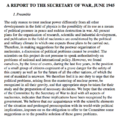Template:Selected anniversaries/June 12: Difference between revisions
Jump to navigation
Jump to search
No edit summary |
No edit summary |
||
| Line 32: | Line 32: | ||
||1935: A ceasefire is negotiated between Bolivia and Paraguay, ending the Chaco War. | ||1935: A ceasefire is negotiated between Bolivia and Paraguay, ending the Chaco War. | ||
File:Vladimir Arnold.jpg|link=Vladimir Arnold (nonfiction)|1937: Mathematician and academic [[Vladimir Arnold (nonfiction)|Vladimir Arnold]] born. He will help develop the Kolmogorov–Arnold–Moser theorem regarding the stability of integrable systems. | File:Vladimir Arnold.jpg|link=Vladimir Arnold (nonfiction)|1937: Mathematician and academic [[Vladimir Arnold (nonfiction)|Vladimir Arnold]] born. He will help develop the Kolmogorov–Arnold–Moser theorem regarding the stability of integrable systems. | ||
||1945: Theodore Hardeen dies ... magician, escape artist. Pic. | ||1945: Theodore Hardeen dies ... magician, escape artist. Pic. | ||
Revision as of 17:59, 6 February 2022
1577: Astronomer and mathematician Paul Guldin born. He will discover the Guldinus theorem, which determines the surface and the volume of a solid of revolution.
1937: Mathematician and academic Vladimir Arnold born. He will help develop the Kolmogorov–Arnold–Moser theorem regarding the stability of integrable systems.
1945: Physicist James Franck brings the Franck Report to Washington. The report recommends that the United States not use the atomic bomb as a weapon to prompt the surrender of Japan in World War II.


